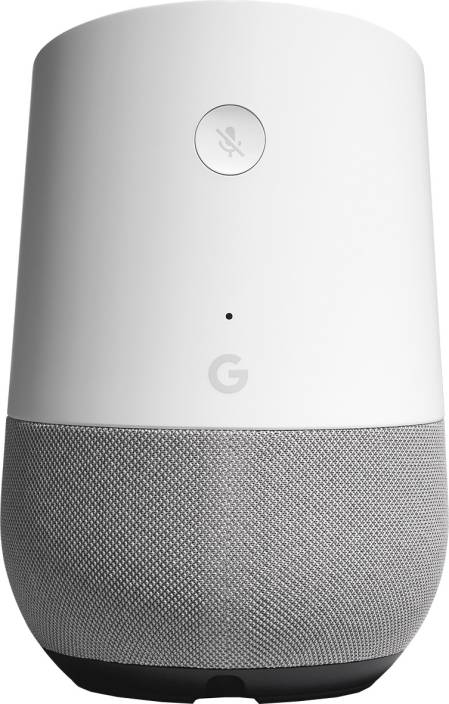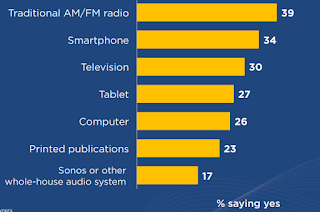A smart speaker is a wireless and smart audio playback device that uses several types of connectivity for additional functions. Smart speakers have special features to enhance ease of use, connect to multiple types of audio sources and provide additional functionality. The original purpose of smart speakers was the wireless delivery of audio content from a user’s media library, which may be on different platforms, and from online music services. Like any type of electronic product, smart speakers vary widely in features, design and quality.
Some smart speakers feature voice-activated digital assistants and can operate as home automation hubs. These devices are often part of a company’s existing product stack. Examples include Google Home and Amazon Echo. Alexa Voice Services (AVS), the suite of services built around Amazon's voice-controlled AI assistant, was introduced with Echo. AVS enables voice interaction with various systems in the environment and online. Typically, smart speakers include Wi-Fi and Bluetooth connectivity. Simpler products range from Wi-Fi-enabled boom boxes to adjustable RGB LED smart speakers that can be spread through a home for distributed or localized stereo sound.
Some smart speakers feature a base station with a magnetic levitating speaker that can be placed on ferrous metal surfaces throughout the home. These base stations often feature not only the Wi-Fi base station component but a subwoofer for low-frequency sound, making it a bass station as well. As with many smart devices, there are security and privacy concerns for smart speakers, in particular with those that use a microphone for voice recognition. Many services upload voice data to servers over the Internet. Privacy experts have expressed concern that the same companies producing smart speakers are also known to harvest user data.
Some smart speakers feature voice-activated digital assistants and can operate as home automation hubs. These devices are often part of a company’s existing product stack. Examples include Google Home and Amazon Echo. Alexa Voice Services (AVS), the suite of services built around Amazon's voice-controlled AI assistant, was introduced with Echo. AVS enables voice interaction with various systems in the environment and online. Typically, smart speakers include Wi-Fi and Bluetooth connectivity. Simpler products range from Wi-Fi-enabled boom boxes to adjustable RGB LED smart speakers that can be spread through a home for distributed or localized stereo sound.
Some smart speakers feature a base station with a magnetic levitating speaker that can be placed on ferrous metal surfaces throughout the home. These base stations often feature not only the Wi-Fi base station component but a subwoofer for low-frequency sound, making it a bass station as well. As with many smart devices, there are security and privacy concerns for smart speakers, in particular with those that use a microphone for voice recognition. Many services upload voice data to servers over the Internet. Privacy experts have expressed concern that the same companies producing smart speakers are also known to harvest user data.

